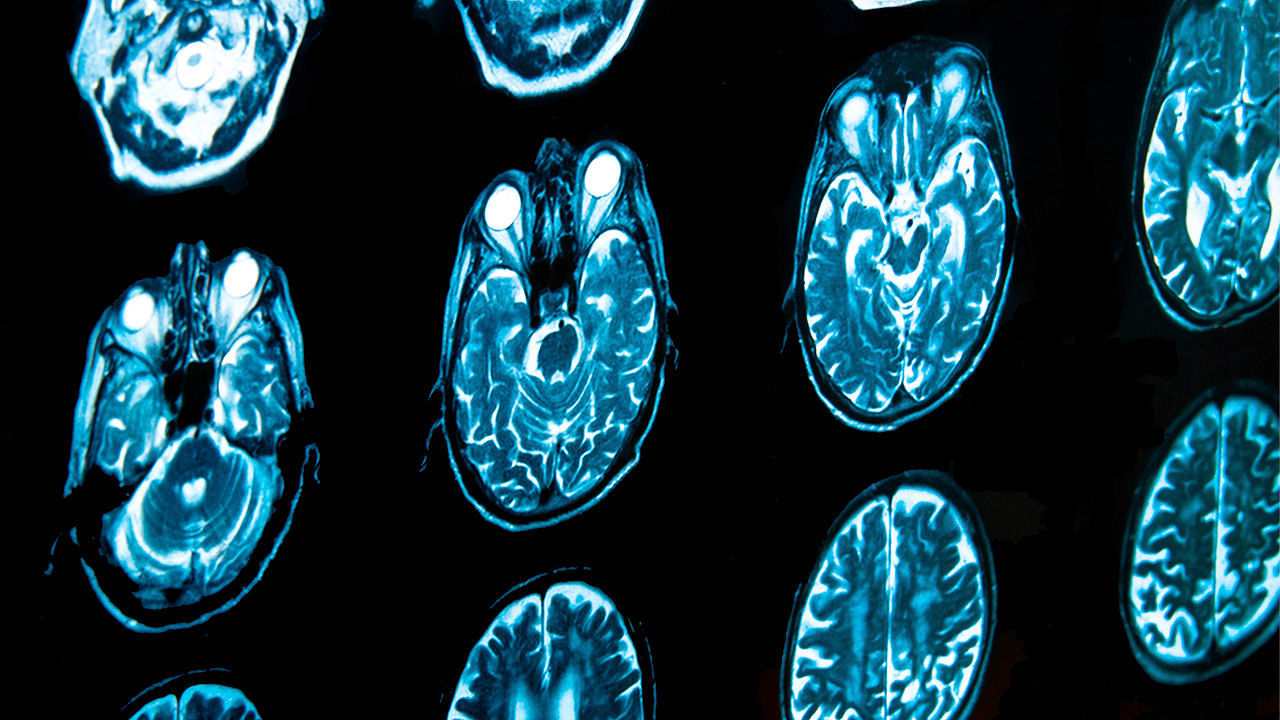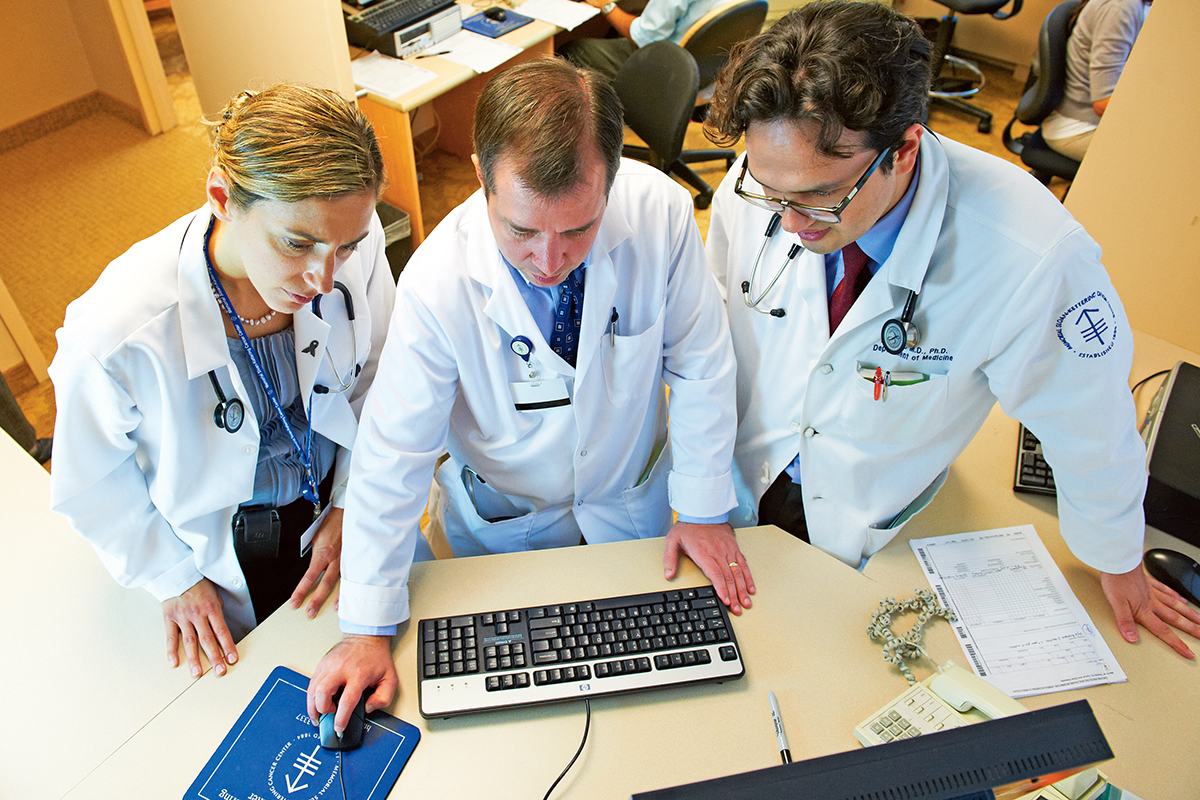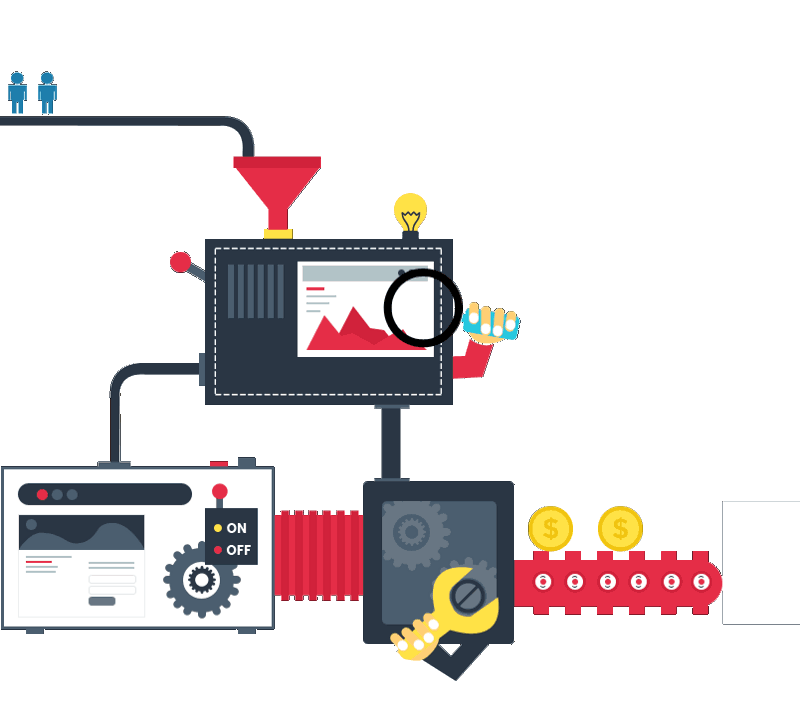
If AI helps people to search for information and reminds when to go on a meeting, it should definitely be helpful in more serious areas, like healthcare, education, and legal sphere. IBM Watson is one of the companies that work on improvement of our health. IBM allows humanity to benefit from technology. This is an era of cognitive health. With Watson medical progress, the healthcare will be brought to the next level. Are you ready for it?
Most Important IBM Watson Health Characteristics
The importance of health is obvious. Still, it’s in the human nature to forget about the most important things – the life itself. Usually, when people face a serious health problem, they change their points of view and a lifestyle. The development of medicine has already achieved great results: scientists have cloned human cells, invented targeted cancer therapies, carried out many successful laparoscopic surgeries. Scientists work on finding new ways to treat cancer and other illnesses that threaten lives of many people. However, these researches don’t bring immediate results.
As it’s calculated by cancer.org, in 2016 in the US there will 1,685,210 cancer cases diagnosed. There may also be 595,690 cancer deaths. And what if we could change these numbers? What if there is already a drug that can treat many serious illnesses? The information about it can be hidden somewhere among millions of patient cases, diagnoses, scientific articles, and medical books. We just can’t notice it because we are humans. But IBM Watson medical system can.

Let’s start with finding out what Watson Health is. It’s a new partnership between technology and humanity. The main goal of this Watson medical group is to transform health. The amounts of data are growing every day. As it’s calculated, by 2020 the medical data will double every 73 days. There are no people in the world who would be able to analyze it. Thus, here is the first benefit of IBM Watson Health – it can do the task nobody else can.
Secondly, most of this health data is unstructured. Besides, images comprise 90% of it. That means that current systems can’t analyze it. But Watson Health can. Moreover, it can read 40 million documents in less than 20 seconds. Just imagine how much medical info it can analyze! This will definitely accelerate the discovery, save expenses on researches, boost the effectiveness of healthcare, and provide the basis for innovations. This is the new time in healthcare – the time of Watson medicine.
Areas for Watson Health Use
Image processing is one of the areas where Watson’s medical knowledge may be really useful. For example, doctors find it difficult to detect melanoma as its features are different on various individuals. However, having analyzed a bunch of melanoma pictures, IBM technology will immediately compare images of patient’s skin and provide a doctor with the info concerning the diagnosis and even treatment.
Another good example is the usage of IBM Watson medical image processing technology for finding cancer in lung CT scans. Scrolling through thousands of scans will take a doctor a lot of time. Besides, this process is so routine that it’s easy for a person to make a mistake. Using special algorithms, a computer will do it quicker and more effectively.

Once having looked at data from one patient suffering from lung cancer, Watson recommended making a molecular analysis. At the same time, doctors recommended treatments with erlotinib. After making the analysis, doctors were surprised to see that Watson was right. Molecular analysis results showed mutation of the EGF receptor. Watson could offer the right treatment because it had read the recent publication featuring results of erlotinib effect on EGF mutations. Moreover, it analyzed the medical info and used it for offering a diagnose in this case. This is a great example of the fact that Watson diagnosis may save someone’s life.
Successful Examples of Cooperation with Watson
IBM Watson medicine may be used in different spheres: population health management, care management, oncology treatment, medical discovery, etc. It may be used by hospital workers who want to save their time, patients trying to get more insights, researcher hoping to get more time for analyzing clinical data. Let’s have a look at some of the examples.
Under Armour collaborated with IBM Watson to create a personal health consultant and trainer app. This medical app analyzes a lot of personal, behavioral, physiological, and nutrition data. Taking into account environmental factors and expert training knowledge, this app provides users with important insights. Thus, a person may track the performance, manage food and nutrition intake. Cloud computing technologies bring users possibilities to enhance their performance and achieve goals more effectively.

Right Servicing is another example of using Watson for bringing health care sphere to the next level. This technology provides social workers with the opportunity to make their work more efficient by having the real-time access to all files. This will bring better results, allowing social programs change according the society needs.
Researchers from Baylor College of Medicine collaborated with Watson to narrow their focus in searching for drugs that may treat cancer. Instead of spending years on this research, they used the Watson’s speed reading ability for analyzing 70,000 articles and finding 6 needed proteins. The time they’ve got may be spent on analyzing other medical data and finding the cure.
The collaboration of Watson and Medtronic allows patients avoiding dangerous spikes and blood sugar drops. Together with physicians from Memorial Sloan Kettering Cancer Center, Watson works on creating personalized treatment plans for cancer patients. Sophie, a virtual medical assistant from IDAvatars, is another awesome example of using Watson for improving the treatment. This interactive character improves customer experience by providing care and data feedback. Helping patients to understand all the instructions, sign out forms, and improve the treatment progress, Sophie turns out to be a great medical support.

It’s All About Data
In order to make Watson’s medical work even more effective, scientists focus on these three areas: data control, governance, and quality. These components are vitally important for ensuring the correct work of Watson. This system learns how to analyze all the data it gets, the decisions one makes, and the effect these decisions have on the person’s health. Such approach may take the medical sphere to the next level where data will be life-saving.
The best option to use Watson now is to benefit from its instantaneous access to medical literature and use it for enhancing doctor decisions. Watson works best when it’s under the control of professional doctors. It provides everyone with a bunch of possibilities. IBM Watson saves our time and efforts, creating new opportunities for healthcare improvements. Learn more about IBM Watson here.
[qzzr quiz=”239991″ width=”100%” height=”auto” redirect=”true” offset=”0″]


